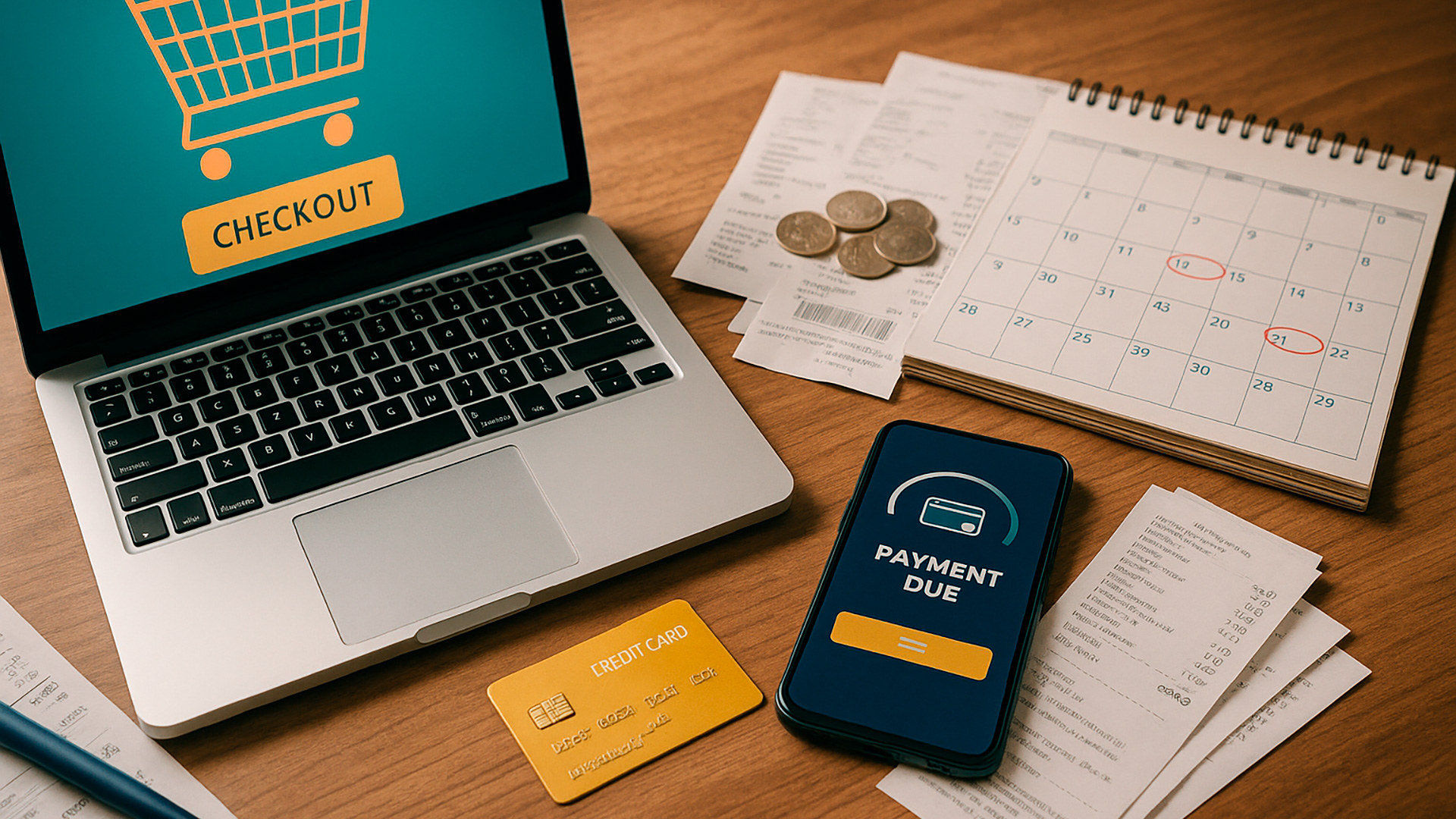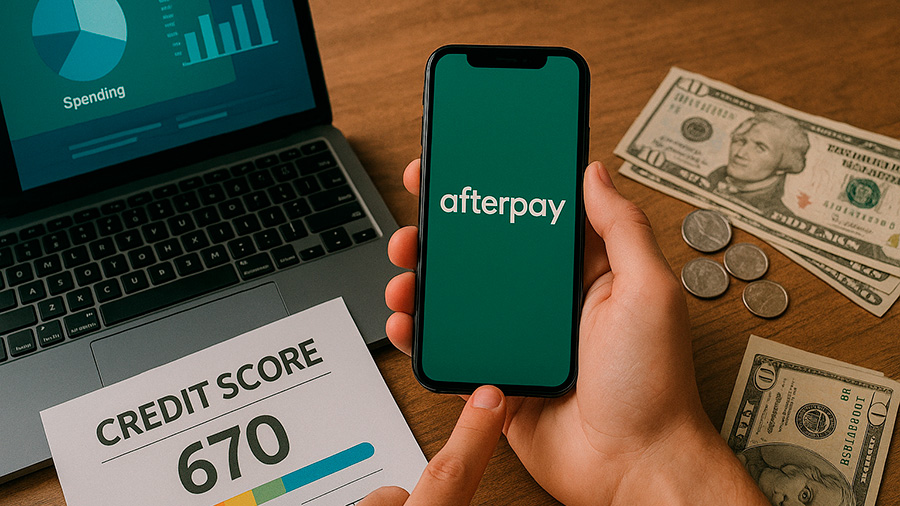
In a world where online shopping has become second nature, payment flexibility has turned into a powerful marketing tool. Among the companies leading this trend is Afterpay, a service that allows consumers to “buy now and pay later” without using traditional credit cards. The idea sounds simple—make a purchase today, divide it into four equal payments, and pay it off over six weeks. But what most people don’t fully understand is the effect Afterpay has on your credit history. Does it help you build credit? Can it hurt your score if you miss a payment? To answer these questions, it’s important to explore how Afterpay works, how credit reporting systems operate, and how these two worlds intersect.
What Exactly Is Afterpay?
Afterpay is part of the rapidly growing “Buy Now, Pay Later” (BNPL) industry. It allows users to split purchases into smaller, interest-free payments, making it easier to afford items upfront. Founded in Australia and now used widely across the United States, Afterpay partners with thousands of retailers—from clothing brands to travel companies. Unlike credit cards, Afterpay doesn’t charge interest, but it does impose late fees if payments aren’t made on time. Understanding the effect Afterpay has on your credit history begins with recognizing that it isn’t a credit card—it’s a short-term financing tool that functions differently from traditional lending.
How Afterpay Works in Practice
When you shop with Afterpay, you make your first payment at the time of purchase—usually 25% of the total amount. The remaining balance is automatically charged to your linked debit or credit card in three installments every two weeks. This process is designed to be frictionless and transparent. There’s no interest and, in most cases, no credit check when you apply. However, missed payments trigger late fees and may restrict your ability to use the service in the future. So, while the process feels casual, it carries real financial implications. To understand the effect Afterpay has on your credit history, it’s necessary to look at how these transactions are recorded—or not recorded—by credit bureaus.
Does Afterpay Report to Credit Bureaus?
This is where things get interesting. As of now, Afterpay does not routinely report user activity to major credit bureaus such as Experian, Equifax, or TransUnion in the United States. This means that timely payments generally do not help you build a traditional credit history. In other words, paying your Afterpay installments on time will not raise your credit score. However, this also means that occasional late payments—unless they lead to serious delinquency—won’t usually lower it either. The neutrality of the system is one reason many consumers enjoy using BNPL services. Still, the story doesn’t end there. The effect Afterpay has on your credit history can change depending on future reporting practices or if accounts become severely overdue.
Table: Afterpay vs. Traditional Credit Cards
| Feature | Afterpay | Credit Card |
|---|---|---|
| Interest Charges | No, payments are interest-free | Yes, if balance not paid in full monthly |
| Credit Check Required | Soft or none | Hard credit check for approval |
| Reported to Credit Bureaus | Generally no | Yes, affects credit history and score |
| Potential to Build Credit | Minimal or none | Strong potential with consistent on-time payments |
| Late Payment Penalties | Flat fee; account suspension | Interest charges and possible credit score drop |
How Credit History Works
Your credit history is essentially a financial diary—an official record of how you manage borrowed money. Credit bureaus collect information from lenders, banks, and other financial institutions to create this profile. It includes details like your payment history, credit utilization, length of credit accounts, and new credit inquiries. These factors are then calculated into your credit score, which typically ranges from 300 to 850. A high score represents reliability and financial discipline. Therefore, the effect Afterpay has on your credit history depends on whether or not the company’s transactions become part of that record. If they’re not reported, they won’t contribute to your score—but they can still influence your overall financial behavior.
Real Example: A Customer’s Experience
Consider Emily, a college student who used Afterpay to purchase $400 worth of textbooks and clothing. She made all her payments on time and never paid a cent in interest. Her credit score, however, didn’t change. Later, when she applied for a car loan, she was surprised that her responsible BNPL payments didn’t count toward her creditworthiness. This situation highlights the key limitation of the system: reliability with Afterpay doesn’t necessarily improve your credit score. The effect Afterpay has on your credit history is indirect—it can encourage good habits but doesn’t always translate into tangible credit benefits.

What Happens If You Miss an Afterpay Payment
While timely payments may not build credit, missed payments can have consequences. Afterpay may suspend your account until you settle the balance, and a late fee—usually capped at a small percentage of the total purchase—will apply. If a user repeatedly defaults or fails to pay entirely, the debt could eventually be sent to a collection agency. Once that happens, it may be reported to credit bureaus and appear on your credit report, potentially lowering your score. This is the most serious version of the effect Afterpay has on your credit history: an unpaid BNPL debt can harm your financial reputation just like any other delinquent account.
Table: Potential Outcomes of Different Payment Behaviors
| Payment Behavior | Effect on Credit Score | Other Consequences |
|---|---|---|
| Always pays on time | No direct impact | Improved cash management, better eligibility for BNPL use |
| Occasionally pays late | No direct impact (unless escalated) | Late fees, potential account suspension |
| Frequently misses payments | Possible negative impact if sent to collections | Debt collection, restriction from future BNPL access |
| Never repays debt | Severe impact if reported to credit bureaus | Legal collection activity, lasting record on credit report |
How BNPL Services Are Changing the Credit Landscape
The rise of Afterpay and similar services like Klarna, Sezzle, and Affirm is reshaping the way consumers view credit. For younger generations, BNPL feels like a safer alternative to credit cards. There’s no revolving debt, no compounding interest, and no temptation to overspend through long-term borrowing. However, regulators and financial analysts are watching closely. Some experts argue that BNPL services can give users a false sense of security, leading to multiple concurrent payment plans that are difficult to manage. As a result, credit bureaus and lenders are exploring new models for incorporating BNPL data into credit scoring. This means the effect Afterpay has on your credit history may evolve in the near future—potentially becoming more significant than it is today.
Real Example: The Hidden Risk of Multiple BNPL Accounts
Michael, a 27-year-old designer, used Afterpay for several small purchases over a few months—new clothes, electronics, and home goods. Each transaction seemed manageable, but the combined total exceeded $1,200 across different merchants. When multiple payments hit his bank account at once, he overdrafted and missed two installments. Afterpay froze his account and required repayment before reinstating access. While his credit score didn’t drop immediately, the experience disrupted his budgeting. Michael learned that the effect Afterpay has on your credit history might not show up on paper right away, but it can influence financial stability and long-term habits.
How to Use Afterpay Responsibly
To make the most of BNPL services without risking financial strain, follow these smart strategies:
- Track your installments: Use calendar reminders or Afterpay’s app notifications to ensure payments are on time.
- Budget before buying: Treat BNPL like a short-term loan and ask yourself if you can truly afford the item.
- Avoid stacking purchases: Limit active BNPL plans to one or two at a time to prevent cash flow surprises.
- Link a debit card instead of a credit card: This keeps spending grounded in available funds.
- Check your email and alerts: Afterpay notifies users before each payment—ignoring these messages can lead to late fees.
Responsible use protects your wallet and prevents the rare but serious risks associated with delinquency. Even though the effect Afterpay has on your credit history is limited for now, your behavior with such platforms shapes your broader financial discipline.
What Experts Say About Afterpay and Credit Building
Financial advisors generally view BNPL services as neutral tools—they’re neither inherently good nor bad. Used wisely, they can help manage cash flow and reduce reliance on high-interest credit. But used carelessly, they can lead to overspending and financial stress. Some experts also caution that if credit bureaus begin incorporating BNPL data, past usage might suddenly become relevant to your credit profile. That means today’s behavior could affect tomorrow’s score. Staying informed about the effect Afterpay has on your credit history helps you stay prepared for these evolving dynamics.
Technology and the Future of Credit Reporting
As the financial world becomes increasingly digital, traditional credit scoring systems are being challenged by alternative data models. These new systems may soon consider nontraditional indicators—such as rent, utilities, and even BNPL payments—to provide a more complete picture of financial responsibility. In this context, Afterpay and similar services might eventually help build credit history rather than remain invisible. The question isn’t just the effect Afterpay has on your credit history today—it’s what that effect could be in five years as technology and regulation evolve.
